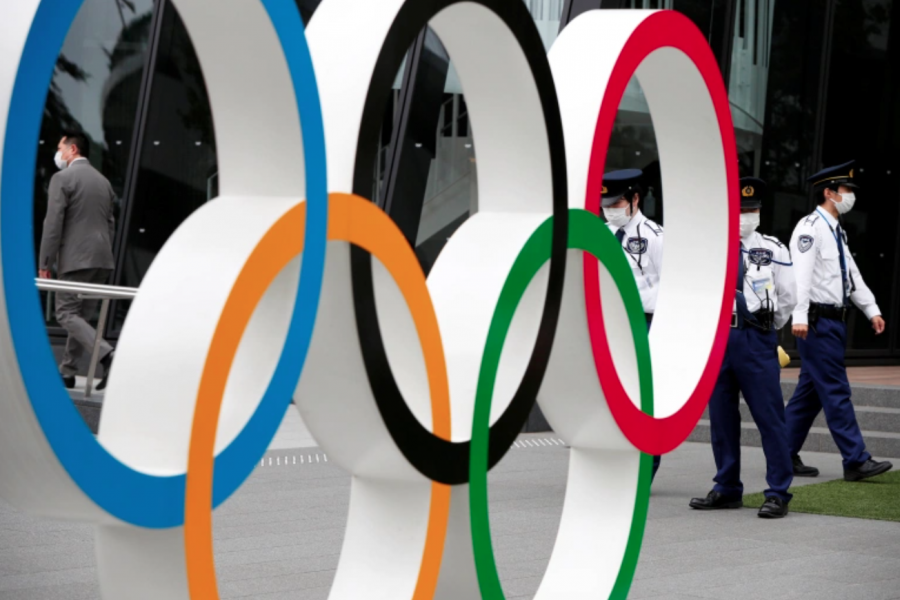International Olympic Committee (IOC) Vice President Joan Coates confirmed that the Summer Olympics will go ahead in 2021, no matter what the situation is. However, many have concerns about this continuation as Japan battles its fourth wave of the pandemic.
The 2020 Olympics, hosted by Tokyo, Japan, were postponed by the IOC to 2021 due to COVID-19. Over 200 countries and 11,000 athletes are expected to compete in 339 events at the Tokyo Summer Olympics. This year, preventing coronavirus comes up in discussing athletes’ and audiences’ safety precautions.
“I think if everyone coming into Tokyo is fully vaccinated, that’s a start,” Ava Brooks, Woodside freshman, said. “Also, if there aren’t any spectators, that will make it safer and still enjoyable for those watching.”
With cases rising and limited vaccines, much of the Japanese population does not approve of holding the Olympics. Over 80 percent of the Japanese public want the Summer Games to be postponed again or even canceled. An online petition titled “Stop Tokyo Olympics” had 414,900 signatures as of June 1.

“I think it should be postponed unless there is a way that they could do a smaller version that would be safe,” Claire Sonnenburg, Woodside student, stated.
With Japanese citizens feeling unsafe about the continuing rise of cases and the risk of the Olympics becoming a super-spreading event, borders are closed to non-residents. The United States Department of State also warned Americans against traveling to Japan.
“Travelers should get tested or get the vaccine before leaving and get tested when they land… They should also be respectful of Japanese [citizens] and wear a mask everywhere around citizens and in places that people can easily be contaminated,” Libby Pfendt, a Woodside freshman, explained. “I think that all athletes should quarantine and stay away from others besides coaches and teammates… and wear a mask at all times except during training and their event.”
There are also people saying that canceling the Olympics would be costly. Japan has already paid $26 billion for the event, as well as an additional $2.8 billion for postponement and safety protocols. There are concerns that another postponement will be too expensive. Gabbie Gerrodette, a Woodside student, agrees with Pfendt that the Olympics should not be postponed.
“They should not postpone it because they have already given up so much money,” Gerrodette said. “They might as well hold the Olympics this year instead of spending more money to postpone, but everyone needs to wear masks, keep distance, and take COVID tests.”

Currently, the Opening Ceremony will take place on July 23 and end with the Closing Ceremony on August 8.
“Masks, reduced crowd size, and social distancing seem like the main precautions [for athletes and audiences],” Sonnenburg said.





